Former national talk show host Dick Cavett invited social revolution into viewers’ homes courtesy of the 1960s icons he interviewed. And this Nebraskan who gave counterculture a mainstream platform stayed busy in the decades after his show ended – writing, performing and lending his stature as a television fixture in a formative era.
Now the 88-year-old can add “music video” to the list of conquered mediums. Cavett plays a starring role in a song named after him by New Jersey rocker Marc Ribler. It is the latest example of the enduring popularity of a man dubbed “the last of the great conversationalists.”
“I did talk about what was going on across a wider range of subjects (Civil Rights, the Vietnam War, Watergate) than some talk shows. … I just thought people would be interested in a wide range of stuff and luckily they were,” he told Flatwater Free Press.
Cavett, who was born in central Nebraska and grew up in Lincoln before heading off to Yale, held down a talk show on ABC from 1968-75. It was the era of the “big three” broadcast networks, when viewers had far fewer options for entertainment. Cavett quickly catapulted into TV fame.
Guests on his show spanned “every genre,” sometimes in crazy and memorable combinations, said Robert S. Bader, a writer-producer who’s worked to preserve the entertainer’s legacy. Bader’s personal favorite crazy pairing on the show: Groucho Marx and Truman Capote.
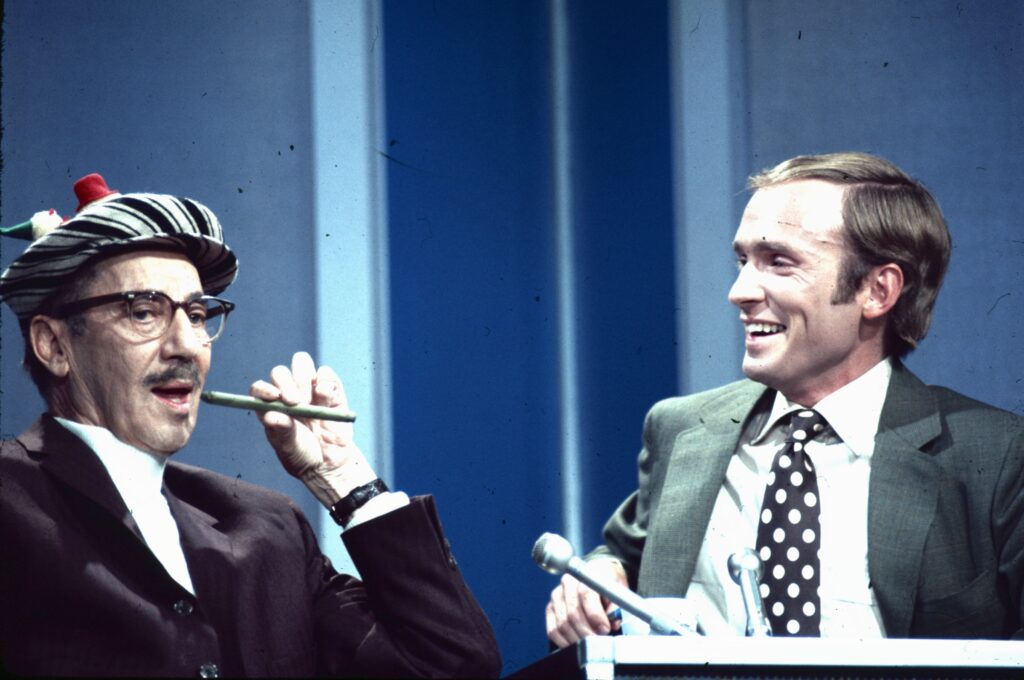
Cavett carved out an audience by defying talk show tradition. He ditched the standard banter in favor of deep discussion, sometimes debates, on serious topics.
Pat Hazell, an Omaha native who wrote on “Seinfeld,” appreciated the raconteur’s mastery at “navigating and amplifying” voices like James Baldwin when discussing a topic like racism. “It made for riveting, relevant television.”
Hazell noted Cavett was equally at home with actors, authors, politicians, athletes, activists and adept at “elegantly refereeing contentious conversations.”
“He was cool under pressure and didn’t back away from a war of words.”
Segregationist politician Lester Maddox walked off one show. Feminist actress Lily Tomlin walked off another.
In the aftermath of Robert F. Kennedy’s assassination Cavett moderated a prescient discussion about gun control and where America would go from there with diverse panelists.
“It was good to not get stuck in a kind of formulaic show where you can pretty much expect what’s going to be said, even about the next topic,” Cavett said.
Snippets from some of Cavett’s talk show conversations – Muhammad Ali, Salvador Dali, Katharine Hepburn, Louis Armstrong, Alfred Hitchcock, Sly Stone – feature in the new music video, along with clips of the band playing in the ballroom of Cavett’s Connecticut home.
In a video about the making of the music video, Ribler – who plays in a band with Steven Van Zandt of E Street Band and “The Sopranos” fame – told Cavett that his show was the musician’s favorite to watch while growing up. He especially appreciated his interviews, including how he got Jimi Hendrix, a shy soul despite his guitar god status, to open up.
The ability to put people at ease is one of Cavett’s gifts, Ribler told him. And he never made the interview about himself. The result: It felt like you were “watching dinner guests conversing in his home – it wasn’t all showbiz.”
It wasn’t always that way, Cavett recalled. Early on he relied heavily on reams of notes, the product of extensive preparation. A friend pointed it out and Cavett adjusted, freeing himself from the notes and worry that they inevitably led to.
“The best advice I ever got, which Jack Paar gave me, was, ‘Kid, don’t ever do an interview, make conversation.’ That’s what Jack did.”
The music video, and conversations it spurred, made Cavett realize just how many musical icons he hosted on his show. He credits Janis Joplin with making his show a destination for hip new music stars.
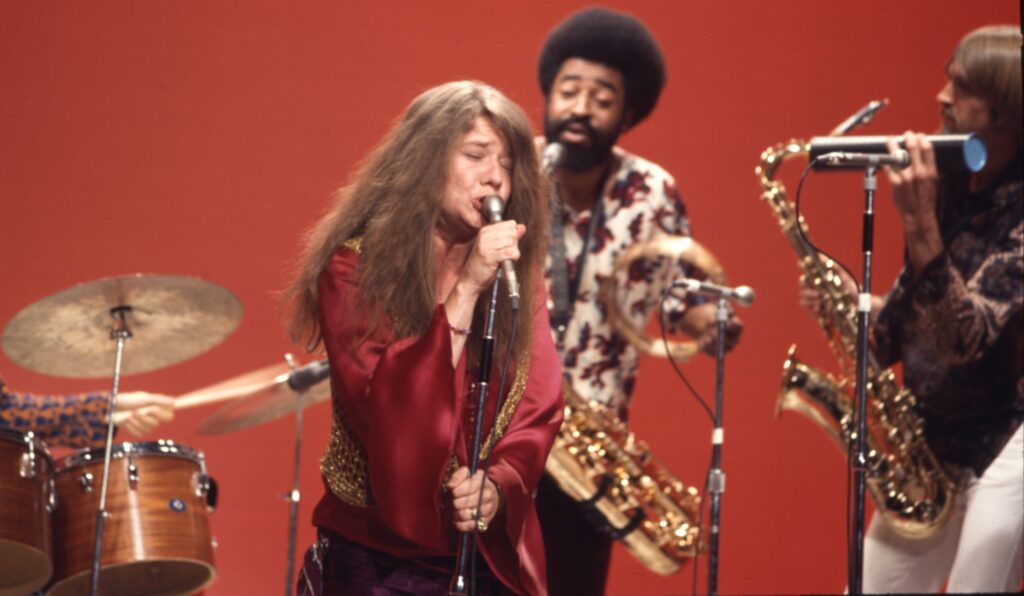
“Janis Joplin was I believe the first (to appear). She was on a number of times and I think she was the one that started the landslide roll of people who then came on partly because Janis Joplin had.”
Bader, who directed the music video, said he wasn’t surprised Cavett took to the role.
“This guy’s been on Broadway, been on many television shows, obviously his own, but he’s also been on ‘Saturday Night Live,’ ‘Cheers,’ ‘The Simpsons.’ I mean, Cavett’s been everywhere. He’s in ‘Forrest Gump,’ he’s in ‘Annie Hall,’ he’s in ‘Apollo 13’ … Dick Cavett is sort of like Zelig – he’s a chameleon.”
Cavett’s off-screen work before landing his own show connected him with another famous Nebraskan known for conversation. He was a staff writer on the “Tonight Show,” first under Paar then under Johnny Carson. The two developed a friendship that carried on after Cavett pursued his own show.
Over the years Carson hosted Cavett as a guest on the show several times. Their shared Nebraska roots and love for magic always came up.
“We had such a good thing going, Johnny and I. It dawned on me gradually how much he liked me. The staff couldn’t believe I ate at his house. ‘You were in the house?’ On the phone he was, ‘Richard’ — he always called me Richard, sort of nice — ‘you want to go to the Magic Castle?’”
In one instance, Carson invited Cavett to a fancy Southern California restaurant. Cavett tried to get out of it, explaining that he’d be late and he only had muddy white running shoes. “Come ahead,” Carson instructed.
When Cavett finally arrived he expected his idol to be long gone. Instead, Carson was sitting at the bar, nursing a drink and sporting his own pair of muddy white running shoes. “I guess when Johnny Carson wants to wear muddy shoes he gets them.”
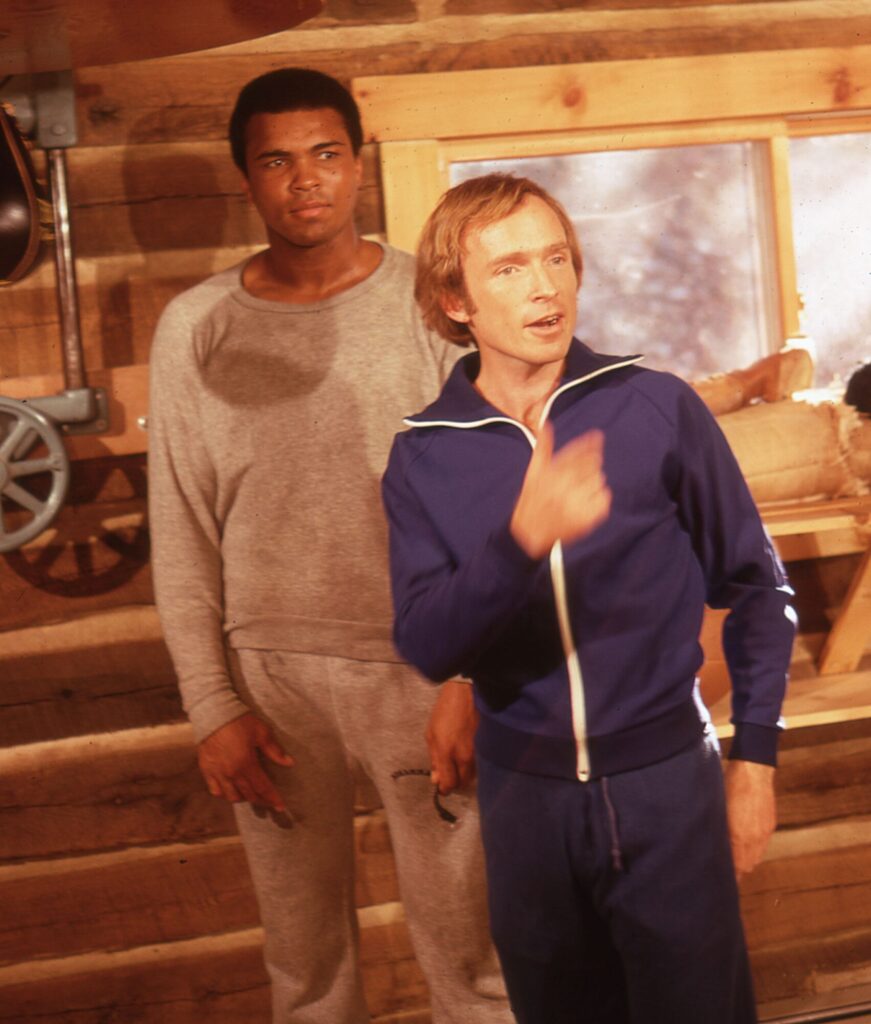
Few realize there were eight iterations of the Cavett show across different TV networks and channels over three decades, resulting in an archive of thousands of episodes. Hundreds have been lost.
For all his dryness Cavett did occasional schtick, such as “box” with Ali, revealing a touch of silliness he never lost. “I like hearing that because nobody wants to be told they have a touch of somber.”
Cavett naturally gravitated to comics. After writing for Paar and Carson he enjoyed a modest standup career. He appreciates the hubris to take a bare stage alone with the expectation of making people laugh.
“Dying” on stage is something he’s experienced. The key is not taking yourself too seriously. It was a lesson he learned at the Hungry I club in San Francisco.
“I’d played there for two weeks and been doing alright and then one night, nothing, zero. Line after line. It was just awful. You could see people at the nearest tables gaping up at you like carp in a pool, not comprehending, not laughing, not moving. And I finally just said, ‘Why don’t you all just get the hell out of here?’ It gave me a wonderful feeling.”
Inexplicably, he said, “the next show went fine. Same stuff.”
Cavett finds little funny about America’s uncivil discourse that follows its polarizing politics.
“Politics in this nation is making me sick. A friend of mine quit watching all news – he’d get so damned mad at what’s going on – and he said it’s turned him into a new person.”
If Cavett had a platform like the one he once did he suspects he would deal head-on with the social-cultural-political divide. It would be unavoidable. “It’s just too in your face, too dramatic, too worrisome. Yeah, it’s a bad thing what we’ve got.”
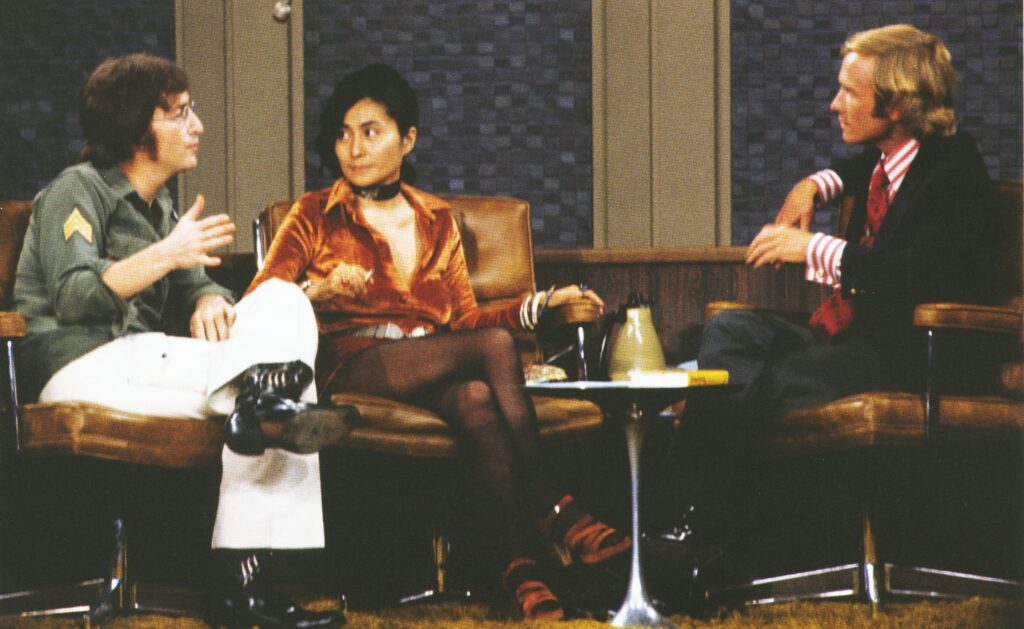
While he doesn’t have the platform he once did, those old shows have found new fame online. A YouTube channel featuring old clips from his shows over the years has racked up more than 146 million views since launching in 2018.
Cavett is glad to be doing well after suffering a stroke a few years ago. He uses a walker or cane to be safe when walking, but otherwise everything has come back, he said.
“I don’t feel permanently dramatically scarred or wounded by it. A lot of people cannot say that. A stroke is a wicked, wicked thing.”
It’s not the first time he’s opened up about personal struggles. He’s previously broached his long battle with depression, speaking to audiences about mental health in Omaha and Lincoln. He has always found writing – penning monologues, columns or books – therapeutic, but he has admittedly done less of that since the stroke.
“I might try again because I am a writer and I feel better when I’m writing.”
Cavett still grieves the deaths of two dear friends, Nebraska Public Media legend Ron Hull and CBS Sunday Mornings “Postcards from the Edge” humorist Roger Welsch. “Ron Hull was a genius at things – just no end of getting things going, dreaming up projects, making them work. He was irreplaceable for many people and projects.”
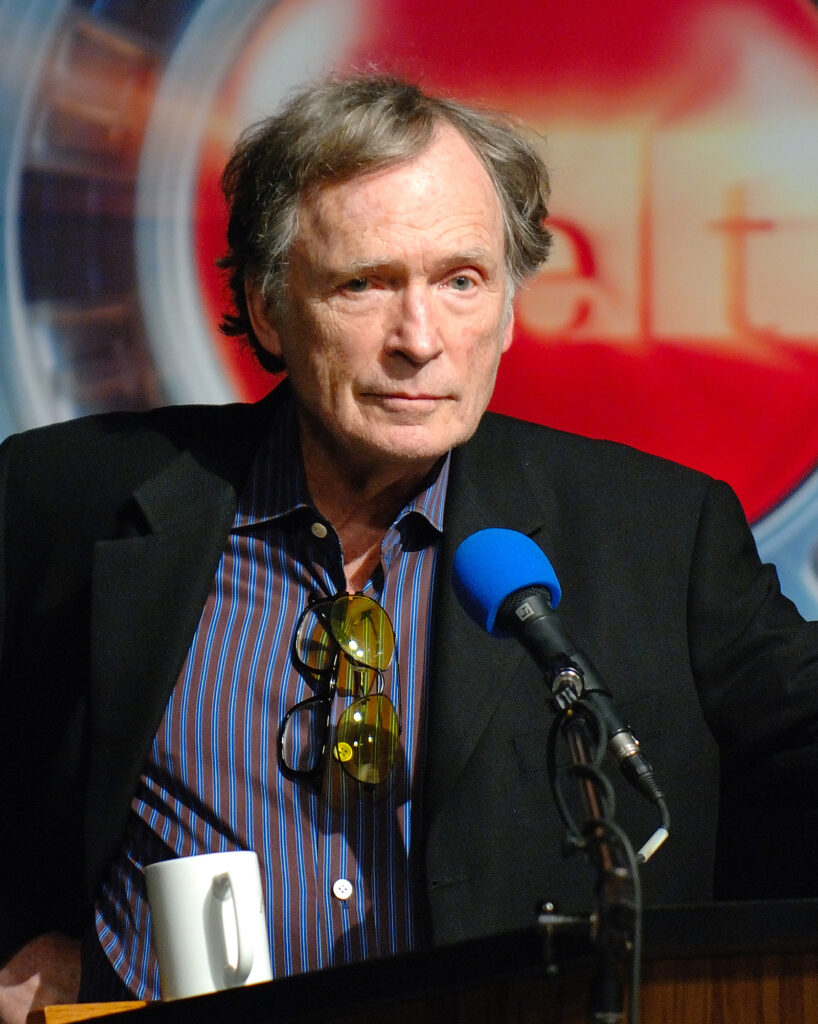
Welsch was a Lincoln High classmate of Cavett and Tony-Oscar winning actress Sandy Dennis, whom Cavett acted with in a school play.
“I still can’t stand the fact there’s nobody at the other end of my email addressed to Roger.”
In addition to departed old friends, Cavett misses the Sandhills, where he used to drive on regular Nebraska visits. He hasn’t been back to Nebraska in some time. Old friends are gone. The stroke has limited his travel.
But he still holds a sense of nostalgia for his home state, and its legendary figures he once hosted in his talk show days — Henry Fonda, Marlon Brando and John Neihardt. And he still recalls the words that Brando told him, words that rang true, he said,
“Because of Nebraska I feel a foolish kinship with you.”



7 Comments
Thanks. Fun to read.
What a wonderful article about Dick Cavett- thank you for keeping a Nebraska icon/entertainer relevant- and giving us the opportunity to catch up on his amazing life
Excellent!
I picked up Dick and Martha from their hotel while he was in town for his show at the Lied a few years back. He wanted a private tour of Robber’s Cave – his old neighborhood playground. What a great time we had reminiscing as we traversed the sandstone tunnels.
Nice! When I worked at Bennett Martin Library in the late 70s to 2001 it was always cool to look up every once in a while and see him in the building, just being a ‘regular person’ making use of public educational resources.
Lovely article, Leo. Learned a lot of things I didn’t know about Cavett and appreciate him even more.
Nice !